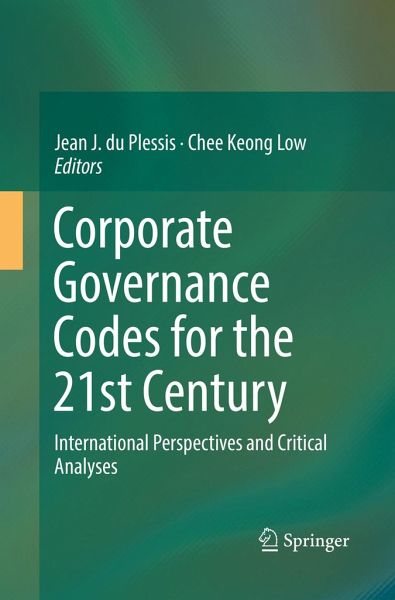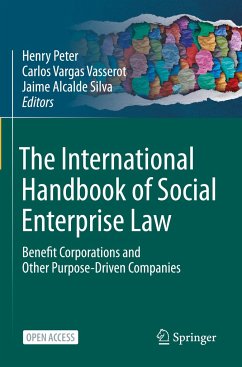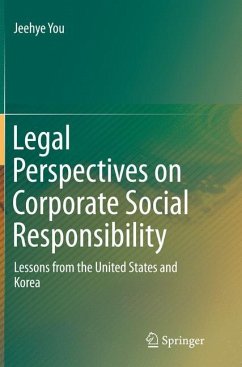
Corporate Governance Codes for the 21st Century
International Perspectives and Critical Analyses
Herausgegeben: du Plessis, Jean J.; Low, Chee Keong
Versandkostenfrei!
Versandfertig in 6-10 Tagen
113,99 €
inkl. MwSt.

PAYBACK Punkte
57 °P sammeln!
The book is the first comprehensive consideration, since the UK Cadbury Report recommended a voluntary Corporate Governance Code, of the question whether Corporate Governance Codes are the most effective way of ensuring adherence to good corporate governance principles. There is no doubt that the idea of voluntary compliance with good corporate governance practices, based on the principle of 'comply or explain', has captured the imagination of the world. It is probably one of the best and most comprehensive examples of 'self-regulation' ever seen in any area where the society could be affected...
The book is the first comprehensive consideration, since the UK Cadbury Report recommended a voluntary Corporate Governance Code, of the question whether Corporate Governance Codes are the most effective way of ensuring adherence to good corporate governance principles. There is no doubt that the idea of voluntary compliance with good corporate governance practices, based on the principle of 'comply or explain', has captured the imagination of the world. It is probably one of the best and most comprehensive examples of 'self-regulation' ever seen in any area where the society could be affected significantly, for current purposes by corporations.However, is this the most effective way of ensuring that corporations act responsibly and adhere to good corporate governance principles? Have these Codes really improved corporate governance practices significantly? Is it time for a rethink and, at least in certain areas, start to rely more on 'hard law' and clearer expectations to ensurecompliance? All these issues are addressed in the book.














